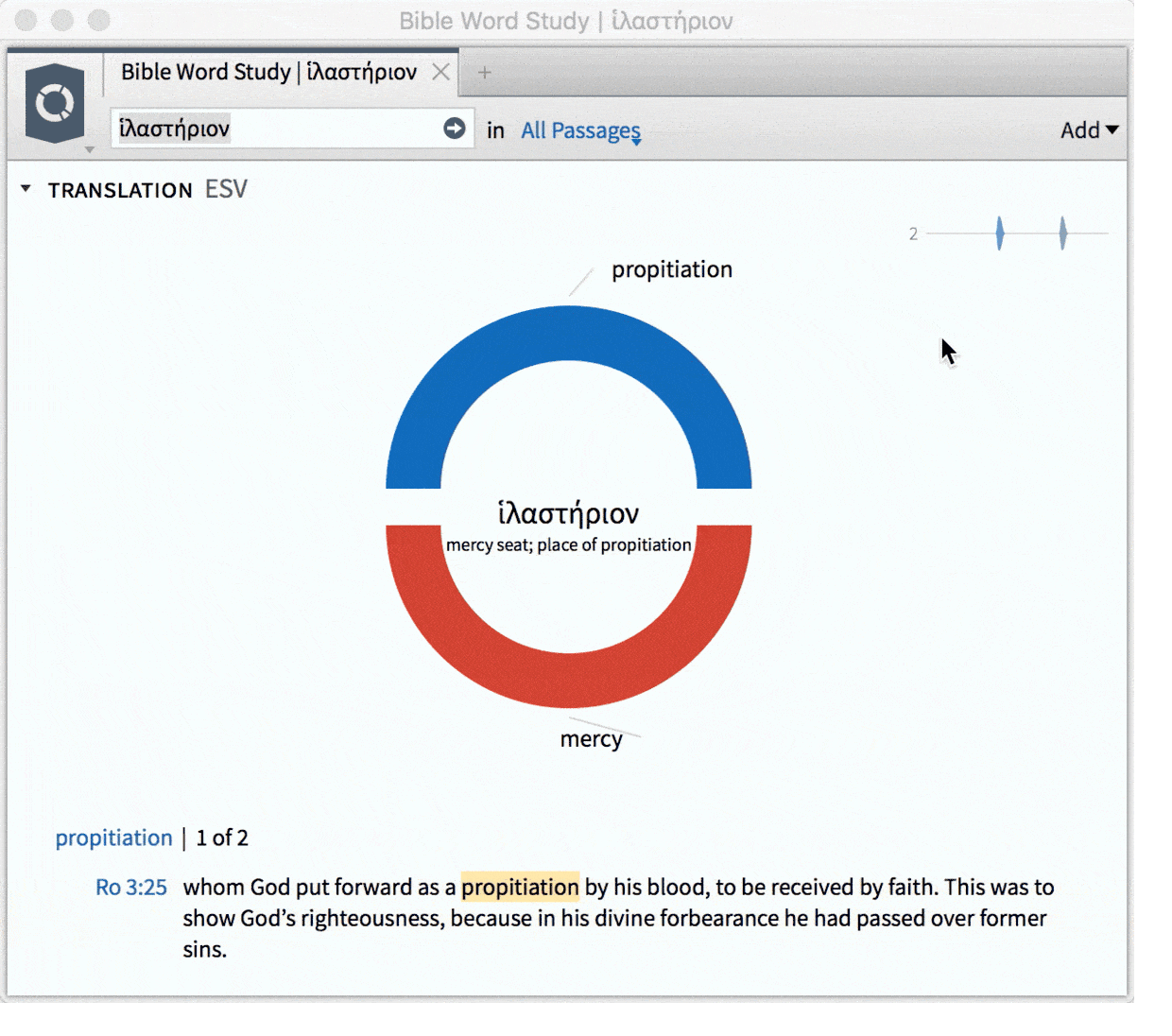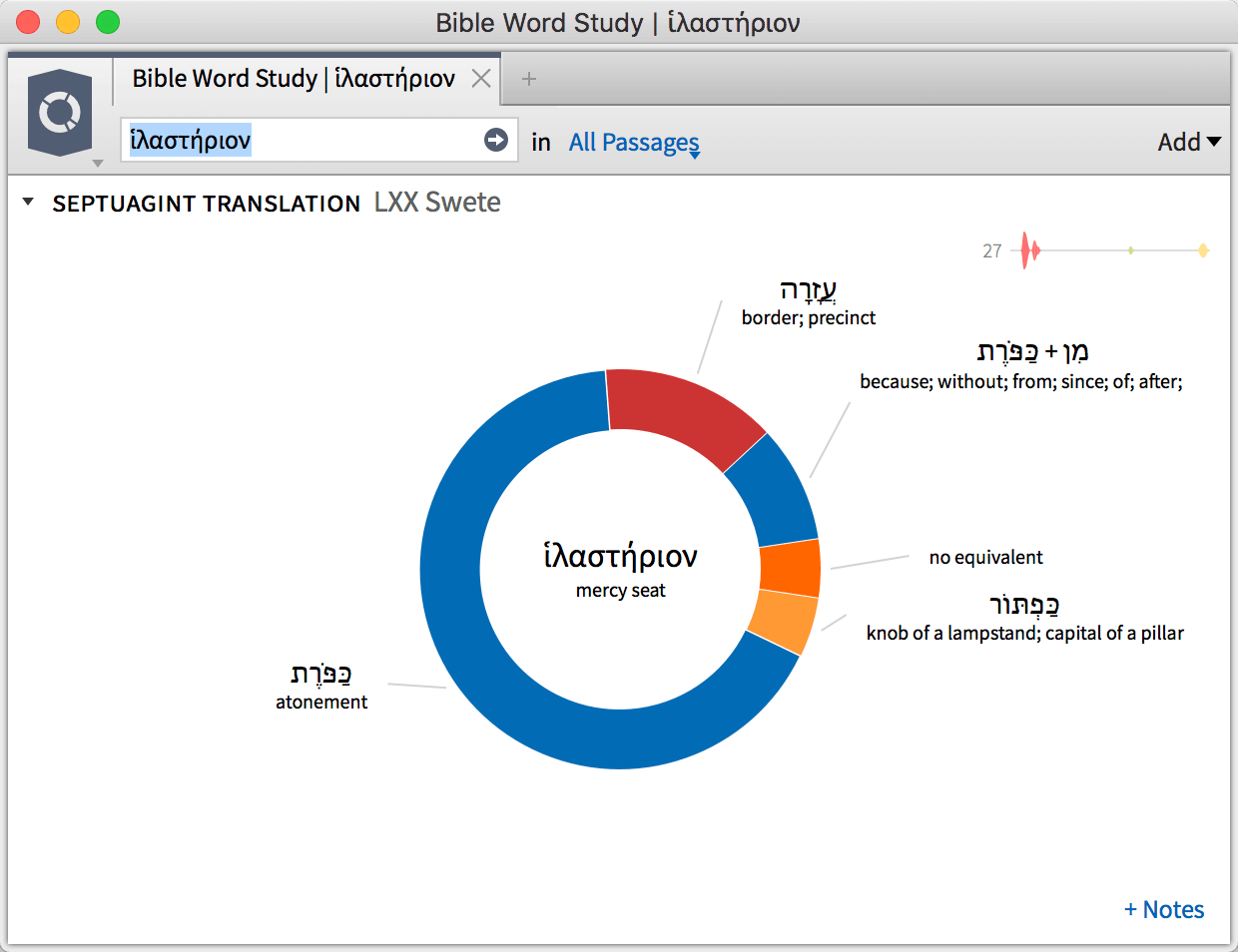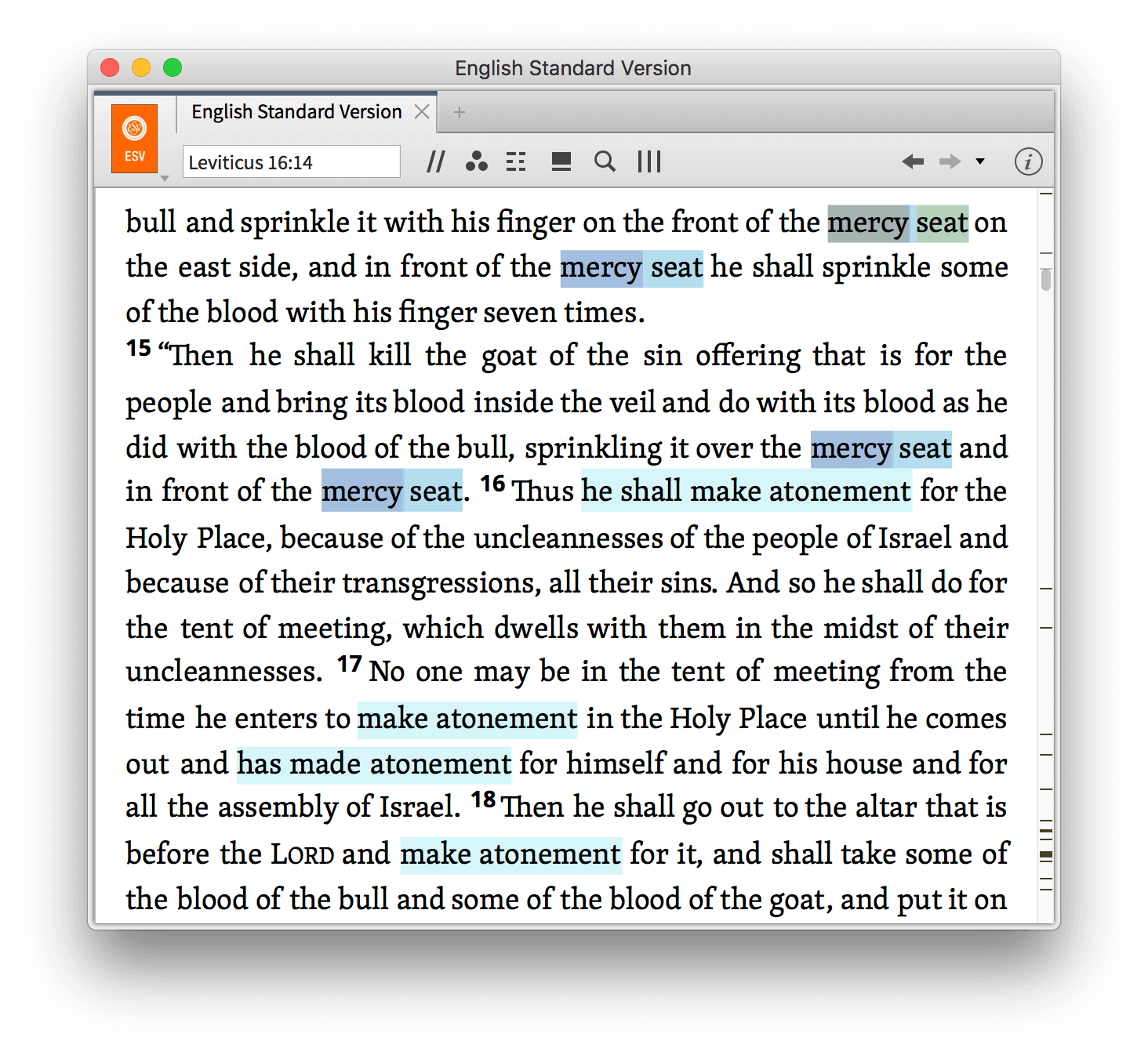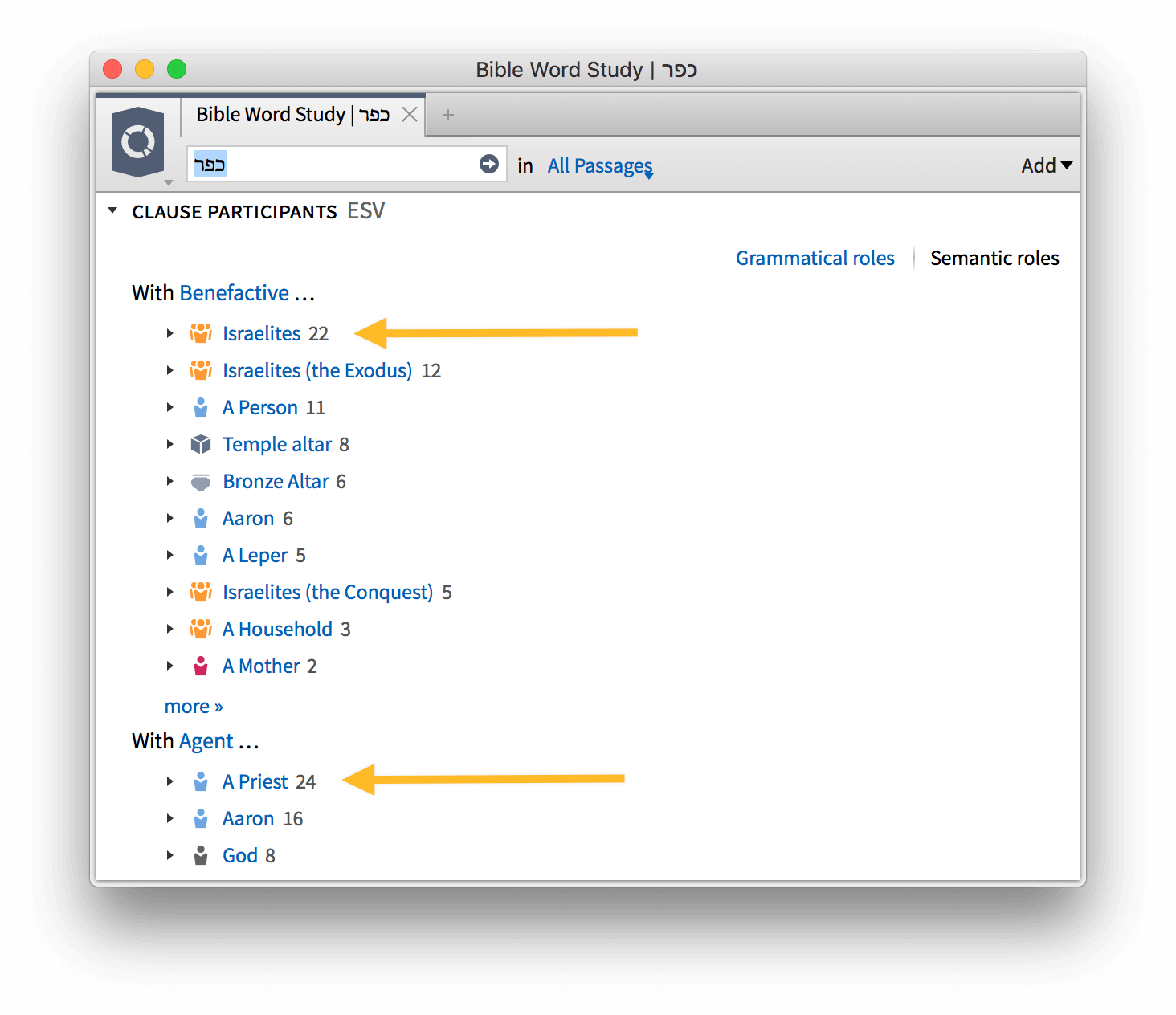Oh man. They give me these topics sometimes. I’m supposed to make responsible Bible word studies “easy.”
Next week: Middle East Peace Negotiations for Beginners.
But no—we can do this. We can. Because the key word is “responsible,” and that mainly means you avoid claiming more for your Bible word study than your work really justifies. And the best way to do that is to calibrate your expectations beforehand. What are you actually hoping to accomplish from a Bible word study?
These five easy steps will show you both what to expect and how to get there.
Step 0: Assume that the most responsible dictionaries are already right.
You’re not expecting to discover something no one else has ever seen, but to make clear to yourself what everybody who’s done the work already knows. This is not discovering penicillin or the Titanic. This is discovering that the pope is Catholic.
In other words: the (most responsible) dictionaries are already right. BDAG is right. Not perfect, but right. So right that it will take another F. W. Danker four decades of his life to come up with something better. So right that you should expect the result of every Bible word study to be confirmed in BDAG (or HALOT for Hebrew words).
Step 1: Pick a Passage.
My next advice may seem a little counterintuitive when my topic is word studies, but it’s healthiest if you pick a passage that you’re trying to figure out rather than picking a word by itself. That’s because words don’t occur by themselves. Ever. Even the word “Ever,” though it appeared in a “sentence” by itself, wasn’t by itself. It was part of a very particular context. You can usefully generalize about what a word means—that’s what dictionaries do, and what word studies do. But you’re more likely to be responsible, to avoid making unwarranted generalizations, if you tie yourself to a passage. What does ἀγάπη (agape) mean in 1 Corinthians 13?
(It’s possible for a word to occur in different senses within one passage, but let’s leave that possibility aside for now.)
Put together with step 0, at the end of every study your goal is to state the obvious:
- Agape in 1 Corinthians 13 means “love.”
- Apostolos in Romans 3 means “apostle.”
- Hallelujah in Revelation 19 means “praise the Lord.”
- “Pope Francis” is listed on the Vatican website—he’s Catholic, all right.
But do a word study well, and your statement of the obvious will be built on a better foundation than it was before you started.
Step 2: Expect to build a stronger foundation for what you already know.
It’s that strengthened foundation that should lead you to bother with a word study in the first place. Otherwise why wouldn’t you just skip right to BDAG?
Well, often you will. (Learn about BDAG here.) But how you understand certain words in the NT may have a significant bearing on someone’s spiritual life—first of all your own. So it’s worth some effort to try to see the obvious.
Consider the meaning of ἱλαστήριον (hilasterion) in Romans 3:25, which speaks of Christ, “whom God put forward as a propitiation [hilasterion] by his blood, to be received by faith (Rom 3:25).
Hilasterion is a key word in what John Stott, quoting Leon Morris (two leading voices on Romans), called “possibly the most important single paragraph ever written.” It’s worth a responsible word study.
And it’s very interesting to see what BDAG says about that word: editor Danker is responsible enough to include both sides in a controversy. So the entry starts with what is generally considered to be a more theologically liberal interpretation: hilasterion signifies “means of expiation.” In other words, the focus is on Christ’s payment, his making amends for our sins. But at the end of sense 1, BDAG has these words: “In this passage [hilasterion] has also been taken to mean…,” and it follows with sense 2. That sense, generally considered to be a more evangelical view, is that hilasterion means “place of propitiation.” In other words, the focus is on God’s wrath being satisfied. God, through Christ’s cross, is appeasing his own righteous wrath against human sin.
Both BDAG senses are true, theologically speaking; but what does hilasterion mean in Romans 3:25?
For a difficult and controverted word like this, your expectations may need to be adjusted: your goal will likely not be to “find the truth once and for all” but to familiarize yourself with all the data so that when you come to the commentaries (more on that later) you are ready to follow and weigh their argumentation.
Step 3: Use the Bible Word Study Guide in Logos to find out how much data you have to go on.
Now for the real practical: use the Bible Word Study Guide in Logos. I used to use a competitor’s software, and when I first saw the now iconic Logos “ring graphs” I thought they were just eye candy. I was wrong. Now I use them all the time. They are indeed beautiful, but they’re also highly functional. They show how your preferred English Bible translates any given word—like hilasterion.

The New Testament is not really a big book, so it’s little surprise that a fairly obscure word like hilasterion occurs only twice. So then what do you do?
Armed with the knowledge that usage determines meaning, you check more early Greek literature than just the New Testament (like the Apostolic Fathers, Josephus, and Philo). But more importantly, you check the Septuagint (LXX). The Bible Word Study tool makes it easy to see how the LXX translators rendered this all-important word. You’ll note in particular that the word “atonement” keeps coming up. Hilasterion was repeatedly used to translate the term “mercy seat,” or (depending on your translation philosophy), “place of atonement.”

The New Testament may use the word hilasterion only twice, but it’s based on a rich history of LXX usage. This is the data any word study of hilasterion will have to work through on its way to a sound interpretation of the word’s meaning in Romans 3:25.
Step 4: Look for contextual redundancies.
Now, when you do find usages of your word in other contexts in the New Testament or Septuagint, what are you looking for? You want “contextual redundancies,” clues in surrounding words and sentences as to what a word means. Anybody who already knows what a “mercy seat” is and what it’s used for in Israelite worship won’t need these redundancies. But we do.
The first use of hilasterion in the LXX, translating a Hebrew word rendered “mercy seat” in the ESV, is in Exodus 25:16: “You shall make a mercy seat of pure gold. Two cubits and a half shall be its length, and a cubit and a half its breadth.”
That doesn’t help us very much, because there’s little in the context to tell us what a “mercy seat” is. We just know it’s part of the tabernacle furniture.
But the rest of the uses in the same paragraph—the word shows up five times here—provide a bit more help. We find that the “mercy seat” is a place on top of the ark of the covenant, shadowed by cherubim, where God will meet with Moses. This is a hallowed place (no wonder Exodus 37:6 tells us that the mercy seat was made of “pure gold”).
Leviticus 16, where the word shows up four times, provides even more important contextual redundancies. It tells us that blood is sprinkled on the mercy seat on the day of atonement. It is indeed a “place of atonement,” as some lexicons say.
And if you have “corresponding words” turned on in your visual filters (and “same root”), you’ll notice some interesting parallels that a responsible word study will explore: the word for “make atonement” has the same Hebrew root as that for “mercy seat.”

I’m laying out a lot of dots for you. But you should connect them as best you can. Try to discern a relationship here.
There are other contextual redundancies to find out for other words, and the Bible Word Study tool is your best one for finding them. It shows you who the characteristic subjects of given verbs are, for example. If “priests” are the most common people to “make atonement” and “the Israelites” are the most common objects of that action—that’s a hint. Not a slam dunk, but a hint.

There are more places to look for usage data (extrabiblical Koine Greek literature, e.g. Josephus). The Bible Word Study tool will you link you out to those, too. But the NT and Septuagint (LXX) are the most accessible and important for your purposes in a Bible word study of a Greek word.
Step 5: Go to the dictionaries and commentaries.
I think now of the sage advice given by an idiolectic goose to Wilbur the pig in Charlotte’s Web:
Go down through the orchard, root up the sod! Go down through the garden, dig up the radishes! Root up everything! Eat grass! Look for corn! Look for oats! Run all over! Skip and dance, jump and prance!” (19)
That’s what I’m urging you to do. Poke around, gathering whatever information seems worthwhile until its relevance or irrelevance is apparent to you. If you jump and/or prance, you may want to close the blinds first.
And remember that Wilbur got in big trouble for escaping the fenced-in barnyard and had to be tempted back in with nice, warm slops. In our case, warm slops are the responsible dictionaries and (especially) the good commentaries.
When you turn, armed with usage data, to BDAG, you’ll get some article recommendations, you’ll get some cross references in extrabiblical literature, and you’ll get reminders to check other dictionaries. You may even get a little hard-earned humblebrag: I already knew this. That is, the information BDAG collected is what you found, too (aside from the German journal articles). Instead of an impenetrable mass of abbreviated points, you’ll see BDAG’s argument developing in front of you.
And when you turn to Doug Moo on Romans, you’ll get a discussion built on that same data: you’ll read of how hilasterion is used in the NT and LXX, what the history of interpretation of Romans 3:25 is, and some reasons to adopt BDAG’s sense 2 (mentioned earlier). This will all make more sense—and be more interesting—if you’ve already stocked your mind with the data and groped toward the right answer as much as you can. It’s Moo’s job to take the bricks you’ve collected and cement them into a stronger foundation.
Conclusion
When you are done with the work you know how to do, you look to others for help. Their help will help more if you’ve done good work in advance. You ought to expect that your work and theirs, together, will give you sufficient (maybe not exhaustive) confidence that you have discerned the best interpretation of hilasterion in Romans 3:25.
***
Related articles
- A Visual Guide to Choosing the Best Bible Translation
- Online Bible Dictionaries: Why Everyone Needs at Least One
- How to Do a Bible Word Study in English the Easy Way
- How to Do a Bible Word Study: A Foolproof Guide
- How to Do a Bible Word Study on “Love”
Related resources
- Greek English Lexicon of the New Testament (BDAG)
- BDAG/HALOT Bundle (Hebrew and Aramaic Lexicon of the Old Testament (HALOT) (5 vols.)) and a copy of BDAG (A Greek–English Lexicon of the New Testament and Other Early Christian Literature, 3rd ed. (BDAG)
- Best Commentaries
- Lexham Theological Wordbook






